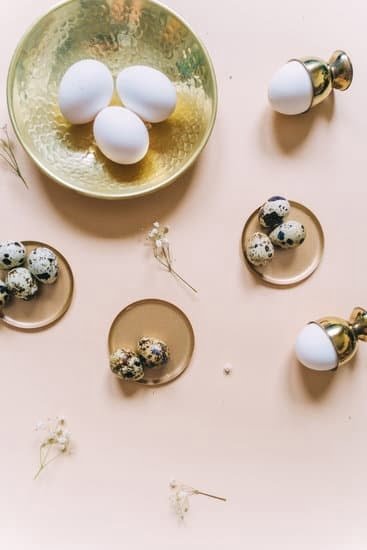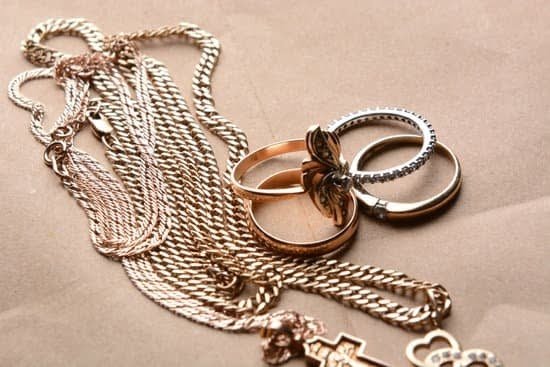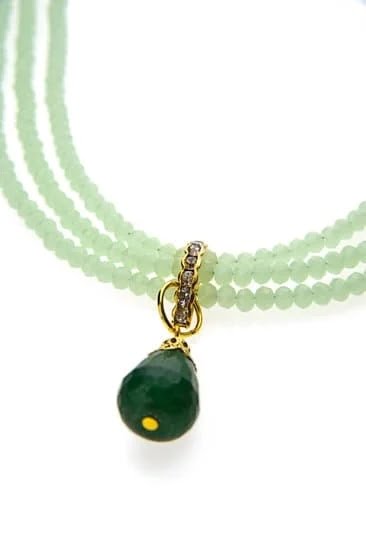Introduction to Evaluating Jewelry
When evaluating jewelry, there are many things to consider that can affect its value. The most important aspect is the quality of the materials used in creating the pieces, such as gold, silver, diamonds, and other precious stones. Additionally, you should always pay close attention to how well the stones are cut and shaped, as well as their color and clarity. Other aspects of a piece’s value might include any historical or artistic significance it may have beyond just its physical characteristics. It is always important to do thorough research before buying any item; this will help ensure you understand its worth and avoid being taken advantage of by unknowledgeable sellers or merchants. Educating yourself on all aspects mentioned will be beneficial in making sure you get a fair price for any jewelry item you choose to purchase.
Jewelry Assessment
Style: Assessing the style of jewelry is important to understanding its value. It is important to consider factors such as the size, shape, composition, design elements, and any additional details like engraving or filigree accents. Style can greatly influence value by determining if a piece is distinctive or popular.
Craftsmanship: An assessment of craftsmanship can be used to evaluate an item’s aesthetic appeal and determine the skill level used in its making. Craftsmanship depends on precision in the carving of stones, smoothing of edges, setting stones securely in place, and good soldering. It must also consider any repairs or alterations that may have been made.
Materials: Finally, assessing the materials used to create a piece will help you understand its true worth. This means looking at not just the precious metals but any other element such as gemstones or crystals that may be included in the design. It also involves examining pins and clasps for secure attachment of separate pieces. Quality materials will increase a piece’s durability and long-term value
Professional Assessment
When looking for a qualified and experienced jeweler to evaluate your jewelry, it is important to do some research beforehand. Start by asking friends, family and other trusted sources if they have an established jeweler they can recommend. Talk with the potential jeweler over the phone or in person to discuss their credentials, expertise and experience so you can be sure they are knowledgeable about the items you would like evaluated. Make sure the jeweler has training and certifications from reputable institutions demonstrating their skills and knowledge. Finally, inquire about any fees for services before making a commitment; many jewelers offer complimentary evaluations for customers with specific jewelry needs.
Gemological Laboratories
Gemological Laboratories are specialized organizations which provide authentication and evaluation services for gems and jewelry. They use a variety of sophisticated instrumentation and analytical techniques to ascertain the properties, quality and authenticity of gemstones. Lab reports will provide impartial an unbiased grading of gemstones regarding their characteristics such as color, clarity, cut and carat.
Lab reports also hold value related to insurance companies when it comes to insuring expensive pieces of jewelry. Similarly, lab reports can be used to certify the value of certain items when dealing with estate sales or inheritance appraisals. Furthermore, laboratory evaluations can identify if a piece contains any synthetic or artificial components that have been intentionally added, or if natural origin has been substituted with artificial components. This is especially important in establishing the true value and origin of diamonds or other precious gemstone items on the market.
Online Research
One of the best ways to evaluate jewelry is to do some online research beforehand. Here are some steps to get you started:
1. Start your research by researching the type of jewelry you’re looking for and any relevant terms associated with it – such as specific gem stones, carat weight or metal settings. This will help you gain an understanding of its value and how much you should expect to pay for it.
2. Once you have learned more about the particular item in question, look for reviews from previous customers who have purchased the same piece. This can provide helpful insight into the quality and craftsmanship of the item in question.
3. Read through several articles covering the jewelry topic at hand, including information on pricing trends and frequently asked questions related to that type of product specifically. Articles written by professionals in the field can be especially helpful if they offer advice or guidance on what to look out for when evaluating a piece of jewelry.
4. Use caution when reading reviews or articles written by sellers directly; they may not always be completely objective and could instead try to sway your decision towards their products only. To verify a seller’s credibility, see if they are a member of any professional organizations or simply call them up to inquire about their experience in selling items like this particular one in question for confirmation purposes.
5. Finally, before making a purchase, make sure you read through tags like “Return Policy” (if available) so that you are aware of all policies regarding returning your purchase if necessary once it arrives at your doorstep.
Qualified Appraisers
Engaging a qualified appraiser is an essential part of the process when evaluating jewelry. Private collectors, auction houses and GIA-certified Gemologists all have their distinct advantages and must be carefully evaluated before engaging their services. Private collectors, for example, often specialize in certain types of jewelry that may not be understood by other evaluators. A private collector who has specialized knowledge about a particular piece or style can provide valuable information that no one else can. Auction houses provide a wide range of pieces from various makers and dealers, allowing you to compare prices and inspect different qualities at your own pace. Finally, GIA-certified gemologists are highly trained individuals who possess specialized knowledge on gems and diamonds that goes far beyond what the naked eye can observe. With the proper training and experience in evaluating jewels, they are especially important when it comes to assessing rarity, value, cut quality and authenticity. All three options – private collectors, auction houses and GIA- certified gemologists – offer unique advantages to consider when evaluating jewelry.
Comparison Shopping
Comparison shopping is a great way to get the most value for your money when it comes to buying jewelry. By comparing prices and styles from different retailers or online stores, you can find the best deals and varieties for any piece of jewelry you’re looking for. This allows you to have more control over the quality, style and budget of what you are purchasing so that you can find something perfectly suited for your tastes. You may also take advantage of special promotions or discounts that some retailers may offer. Furthermore, comparison shopping enables you to read reviews or customer feedback regarding any particular piece before making a purchase, which further helps ensure an excellent buying experience.
Conclusion
When evaluating jewelry, it is important to take into account several different criteria such as the quality of the material and craftsmanship, the aesthetic appeal of the design, and the price. Researching a piece before purchasing is also essential, as this can ensure that you are getting what you are paying for. Knowing information such as who made it and where it came from can give insight into its authenticity and value. By taking all these factors into account, you can assess whether the jewelry piece you’re about to buy is worth your hard-earned money. Moreover, researching a piece before you purchase it allows you to ask questions about its history or authenticity that an in-store salesperson or jeweler may not be able to answer. Overall, evaluating jewelry requires using numerous criteria, as well as researching before buying, in order to get an accurate picture of its true value.

Welcome to my jewelry blog! My name is Sarah and I am the owner of this blog.
I love making jewelry and sharing my creations with others.
So whether you’re someone who loves wearing jewelry yourself or simply enjoys learning about it, be sure to check out my blog for insightful posts on everything related to this exciting topic!



